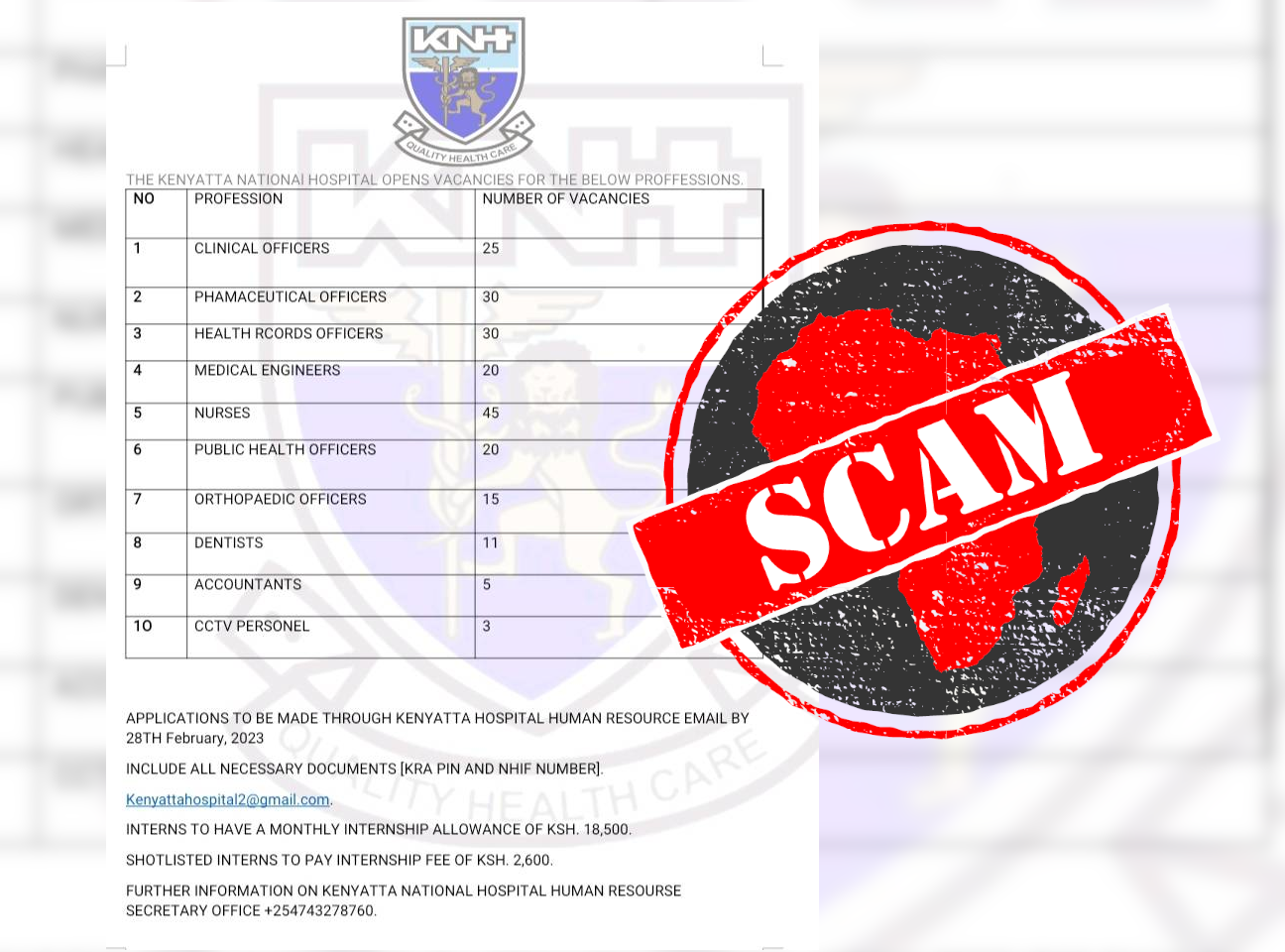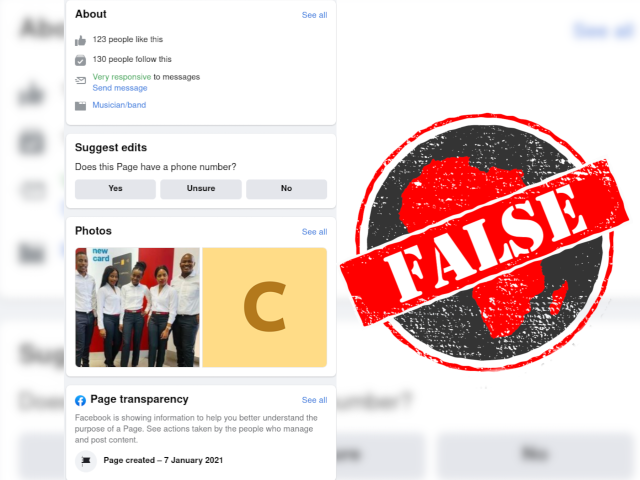IN SHORT: Positions at Kenya’s main public hospital in the capital of Nairobi would be welcome to many job seekers, but unfortunately the ad is just another lure dropped by fraudsters.
An advert for jobs at Kenyatta National Hospital (KNH) in Nairobi has been circulating on Facebook since mid-February 2023.
KNH is Kenya’s flagship national hospital.
The positions to be filled include clinical officers, medical engineers, nurses, public health officers, dentists and accountants.
The ad says applications should be sent to the KNH Human Resources email address by 28 February.
It also offers internships, but there’s a catch: shortlisted applicants have to pay a KSh2,600 fee.
“INTERNS TO HAVE A MONTHLY INTERNSHIP ALLOWANCE OF KSH. 18,500. SHOTLISTED INTERNS TO PAY INTERNSHIP FEE OF KSH. 2,600,” it reads.
The ad has also been posted here, here, here, and here. But are the jobs legitimate?

Money for jobs = scam
Asking for money upfront is a clear sign that you’re dealing with a job scam.
Another sign that the ad is not legit is its many grammatical errors. This would be highly unlikely in a document issued by a government institution.
On 14 February, KNH stamped the ad “FAKE” and posted it on its official Twitter account.
Dear Kenyans, watch out for this fake news.#KNHinakujali pic.twitter.com/TLsGMw58r5
— Kenyatta National Hospital (@KNH_hospital) February 14, 2023
“Dear Kenyans, watch out for this fake news,” the hospital tweeted.
To help protect yourself against online con artists, read our guide to Facebook scams and how to spot them.
Republish our content for free
For publishers: what to do if your post is rated false
A fact-checker has rated your Facebook or Instagram post as “false”, “altered”, “partly false” or “missing context”. This could have serious consequences. What do you do?
Click on our guide for the steps you should follow.
Publishers guideAfrica Check teams up with Facebook
Africa Check is a partner in Meta's third-party fact-checking programme to help stop the spread of false information on social media.
The content we rate as “false” will be downgraded on Facebook and Instagram. This means fewer people will see it.
You can also help identify false information on Facebook. This guide explains how.



Add new comment